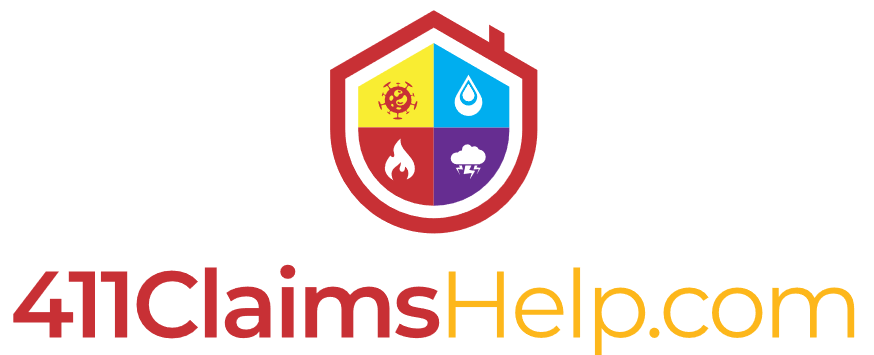Should I Hire a Public Adjuster

After experiencing property damage from a storm, fire, flood, or other disaster, filing an insurance claim can feel overwhelming. The process often involves long forms, inspections, negotiations, and waiting for a fair payout. Many policyholders wonder, should I hire a public adjuster to help with their claim? A public adjuster is a licensed professional who represents you—not the insurance company—to ensure you get the maximum settlement possible. In this article, we’ll explore when hiring one makes sense, how they operate, and what benefits they offer, helping you make an informed decision for your situation.
What Is a Public Adjuster and How Do They Work?
A public adjuster is an independent insurance claims expert who helps policyholders handle damage claims. Unlike insurance company adjusters (who protect the insurer’s interests), a public adjuster works exclusively for you.
What a public adjuster does
- Inspects and documents all property damage.
- Reviews your insurance policy to understand coverage limits.
- Prepares detailed claim estimates for submission.
- Negotiates directly with your insurance company.
- Helps reopen or dispute underpaid or denied claims.
Most public adjusters work on a contingency basis, meaning they only get paid if you receive a settlement. In Florida and most other states, fees typically range between 5–10% of the final settlement.
Reference: National Association of Insurance Commissioners (NAIC)
When Should You Hire a Public Adjuster?
Hiring a public adjuster can be a smart move, but it depends on your claim size and complexity. Here’s when their help is most valuable.
1. When the damage is significant
If your home or business sustained major damage—like after a hurricane or fire—a public adjuster can ensure no loss is overlooked. These claims often involve multiple coverage areas (roof, interior, personal property, water damage) that need detailed evaluation.
2. When your claim is underpaid or denied
If the insurance company’s offer seems low or your claim was denied unfairly, a public adjuster can review the case, gather additional evidence, and negotiate a higher payout.
3. When the claim process feels overwhelming
Filing an insurance claim requires meticulous documentation and policy interpretation. A public adjuster handles all communication, so you don’t have to manage it while dealing with the emotional toll of property loss.
Helpful Source: Florida Department of Financial Services – Public Adjusters
Advantages of Hiring a Public Adjuster
While some homeowners prefer to handle claims on their own, hiring a public adjuster provides several key advantages.
Key benefits include:
- Maximized settlements – Public adjusters know how to identify hidden or secondary damage that insurers often overlook.
- Time savings – They handle paperwork, calls, and follow-ups, freeing you to focus on recovery.
- Expert negotiation – Adjusters understand insurance jargon and tactics, giving you a stronger position during negotiations.
- Peace of mind – Having an advocate ensures your interests are protected throughout the process.
For most homeowners, even after paying the adjuster’s fee, the final settlement often exceeds what they could have secured on their own.
Related article: Choosing the Right Public Adjuster in Houston—Key Questions to Ask
Potential Drawbacks to Consider
Although hiring a public adjuster offers many benefits, it’s important to understand potential downsides before deciding.
Things to keep in mind
- Fees: You’ll owe a percentage of your settlement as their fee.
- Small claims: For minor damage (e.g., under $5,000), it might not be cost-effective.
- Timing: If you’ve already signed a release or accepted payment, your options may be limited.
Always review your agreement carefully and confirm the adjuster’s license before hiring. In Florida, you can verify this through the Department of Financial Services database.
DIY vs. Professional Help: Which Is Better?
Whether to handle your claim yourself or hire a public adjuster depends on your comfort level, claim value, and time availability.
Choose DIY if:
- Damage is minimal and well-documented.
- The insurer is responsive and transparent.
- You have time to follow up on paperwork and inspections.
Hire a public adjuster if:
- The loss is complex or high-value.
- You suspect your insurer is underpaying.
- You’re unsure how to interpret your policy.
A public adjuster levels the playing field between you and the insurer, ensuring you receive the full compensation you’re entitled to.
FAQ: Should I Hire a Public Adjuster?
What does a public adjuster do?
Answer: A public adjuster assesses property damage, files claims, and negotiates with your insurance company on your behalf to ensure fair payment.
How much does a public adjuster cost?
Answer: Most charge 5–10% of the final claim settlement. They are typically paid only after you receive compensation.
Is hiring a public adjuster worth it?
Answer: Yes, especially for large or disputed claims. Their expertise often results in higher settlements than policyholders could achieve alone.
Can I hire a public adjuster after my claim is denied?
Answer: Yes. Public adjusters can help reopen denied claims, gather new evidence, and appeal the decision.
How do I find a reputable public adjuster?
Answer: Verify their license through your state’s insurance department and check online reviews or professional associations like NAPIA (National Association of Public Insurance Adjusters).
Final Thoughts
If you’re asking yourself, “should I hire a public adjuster?”, the answer depends on your comfort with handling complex insurance claims. For major property damage, denied claims, or undervalued settlements, hiring a professional is often worth it. Their expertise can save you time, reduce stress, and secure the maximum payout your policy allows.
Need Help with a Property Damage Claim?
If your claim feels overwhelming or unfairly handled, Contact 411 Claims Help for Experienced professionals can guide you through every step of the process to ensure you get the settlement you deserve. Don’t navigate insurance challenges alone—get expert help today.



